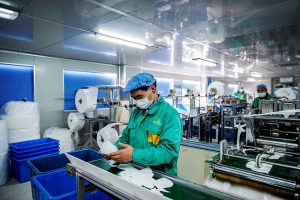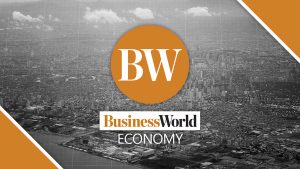A quick history of the (mis)use of public funds

While by no means extensive, this piece revisits some of the more well reported and documented public funding anomalies. For the purpose of this column, the first type of funds are those that have been collected for a specific purpose and were meant to be disbursed for a specific use. Two examples come to mind:
1. The Coco levy fund – collected from coconut farmers in the 1970s and ’80s, this fund was originally created to develop the coconut industry but instead made its way into the pockets of Marcos cronies through various holding companies. The Supreme Court restored the coco levy fund to coconut farmers in 2012 and reaffirmed its decision in 2014. The trust is valued at around $70 billion.
2. The Malampaya fund – the Malampaya Deep Water Gas-to-Power project began operations in 2001/02. Profits were to be for energy development programs and ambiguously “other purposes.” Releases to various government agencies started to climb in 2006 with the largest disbursement (P900 million) in 2009 for those affected by typhoon Ondoy and Pepeng.
The second type of fund which becomes part of “normalized” government operations are those that have become habitual, but with long term negative effects. The best example here would be the pork barrel funds, which came to a “halt” with the breaking of the Janet Napoles PDAF scandal in 2014 (the linking of the two types of funding anomalies can be seen here with Napoles’ access and misuse of the P900 million disbursements of the Malampaya fund funneled through the Department of Agriculture and into bogus NGOs. The case involved “kickbacks” to participating politicians for their cooperation in the scheme. A few days ago, on Oct. 2, Napoles was “convicted of corruption but cleared of plunder” (see https://newsinfo.inquirer.net/1840612/napoles-cleared-of-plunder-convicted-of-corruption) along with former Rep. Valdez of Association of Philippine Electric Cooperatives party-list.
Returning to a piece written by colleague Dr. Carmel Abao in 2017 entitled “Why Rationalize Bad Practice?”: “It has been argued that the pork barrel must stay because it is ‘for the good of the people,’ i.e., it is good especially for far-flung local communities in dire need of development funds and which, for some reason or another, have not been reached by either their local governments or by the National Government. Only the politically naïve will take this argument as true. Pork barrel is not for development but for political alliance building. It is one way by which the President — or any president for that matter — generates majority legislative support. This kind of support generation becomes necessary especially when the President has to rein in recalcitrant legislators. When the ties that bind the executive and the legislative involve money rather than an agenda or a platform, alliance building transforms into patronage politics.” (bit.ly/3POCSDz).
The same arguments have been floated for the currently controversial confidential and intelligence funds, which the public greets with tired acceptance of the fact that while the existence is easy to prove and its ill effects easy to identify, it is tedious and terrifying to undo. In this iteration of “bad practice” funds, confidential funds sit in the executive branch and/or local government and are difficult to audit, like the “soft” versus “hard” pork barrel disbursements wherein “soft” pork was less easy to track. Further, the use of these funds is allegedly seen as ultimately strengthening patronage networks, and reducing accountability overall.
We should also not lose sight of the staggering amounts that each of these funds generate — in the years she was mayor of Davao, Sara Duterte’s confidential funds amounted to P2.6 billion. As Vice-President and Education Secretary, her offices requested P500 million and P150 million in confidential funds respectively.
As writers and academics, we encourage the public to read into the long-term costs of these forays into bad governance and how much time it has taken for the country to recover from each cycle of malversation of funds, rid ourselves of criminals in the system, recoup from the collective opportunity lost, and try and remedy the irreversible damage it does to the political and economic infrastructure of the country. The continued acceptance of unexplained wealth and unchecked power has us inching towards the same cycle of politics and despair for generations to come.
Maria Elissa J. Lao, DPA is associate professor of Political Science at the Ateneo de Manila University.




